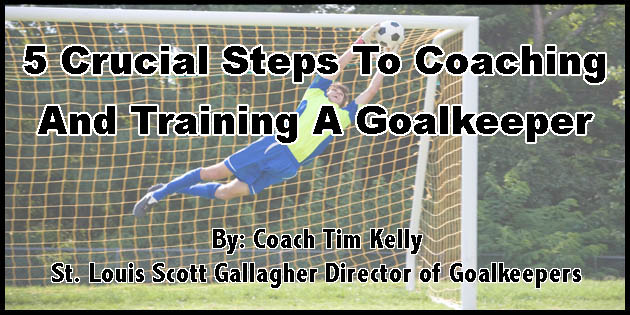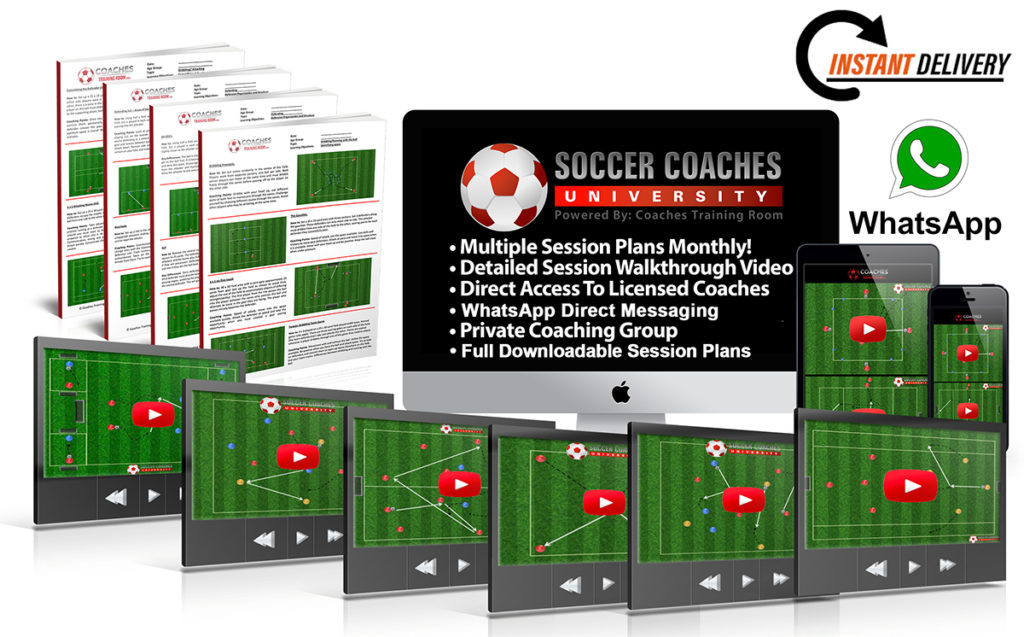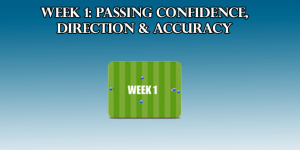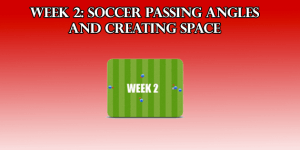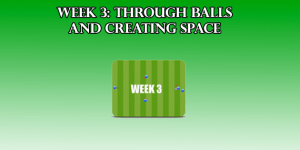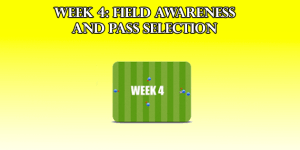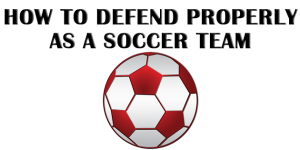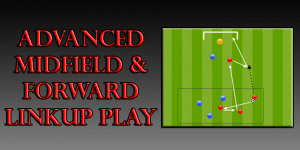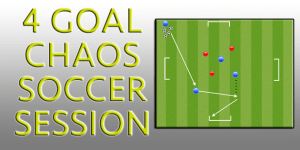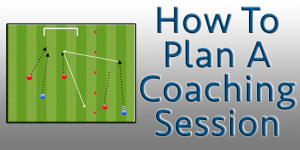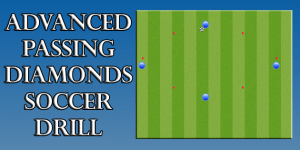I want to introduce myself first so you as viewers know my background as a Soccer Coach before I dive into the finer points of training a goalkeeper. I had a short career domestically in the states before a knee injury put me back a bit. When I came home during an off-season I was asked to do some training for my youth club, Scott Gallagher. I realized during that time that I really enjoyed teaching the position. Teaching runs in my family so to me it was an easy transition from playing soccer to coaching soccer.
I decided at that time that I wanted to focus on my coaching career more so then my playing career. That was 15 years ago and the number one tool to become a better coach and being more effective in training a goalkeeper is logging hundreds of hours on the field, just like a goalkeeper in many ways. I am continually learning my craft and it’s important to continue to push oneself mentally as a coach. As a player, I was trained from a Brazilian/Spanish roots perspective.
Just like many new coaches, you rely on a large part at the beginning stages of what you knew as a player. In my years of coaching I have taken many principles from other influences but mainly to this day, Spanish and German however I’m intrigued by the Dutch. Being with my former youth club I have been fortunate enough to grow with the club. Along the way I was fortunate to work with many different levels of players. Players that goals were to make their varsity team in high school, play college and for those elite few, play professionally.
Scott Gallagher has produced 7 professional goalkeepers in the past 15 years to move on domestically in the professional ranks. However, what has defined me as a coach is to be able to work with different levels of ability. To squeeze every ounce of the players is the goal, no matter what level then end up at. So, my career now is being the Director of Goalkeepers for St. Louis Scott Gallagher and the Academy Director of Goalkeepers for our first team, ST. Louis FC of the USL.
The topic is 5 keys to coaching and training. I do feel depending on what your role is now those two are different in many perspectives but at the same time, does have some cohesiveness. Knowing there are more and more keeper specific academies along with the club/pro-environment, to a point both environments are very different, depending on the instructor. I know many of you have your own opinions and I am sure if collaborated we would learn a lot of each other. Ultimately, that is our job as teachers to better teach out students, the keepers. Which is why Coach2Share is a great platform to continue to push you/me forward to challenge us as teachers to expand our mind.
Did you start your FREE 14 Day Trial Of Soccer Coaches University yet?
Below are the 5 keys to being a good trainer.
Trainer to me is someone who is solely doing just that, training with minimal game views. All have a purpose in the long-term plan for the goalkeeper, which is the ultimate goal. Whilst this topic is geared more towards training a goalkeeper, the rules are applicable on a larger scale, so please take from it what you will.
1) Humility: This is a big aspect for me. I have noticed the less humility a coach has the more likely that coach is set in “their ways” and less likely to be open to more practices. Furthermore, as many as you know, the players can take on the personality of their goalkeeping coach, which is a double edged sword. That player will most likely blame others, look for reasons something didn’t work or be close minded to new principles, such as techniques or game situations whereas the humble goalkeeping coach will impart elements of their personality while training a goalkeeper, and this will be a more relaxed player, more open to new techniques to improve.
2) Not Being a Cookie Cutter Coach: Finding the natural strengths in each individual to suit their ability/ physique. Of course, developing their negative aspects when coaching a goalkeeper to ultimately have a balance as he or she is older and more experienced. Length, quickness, lateral footwork, are just a few aspects to think about when figuring out what best suits each individual when training. Absolutely, there are many techniques that are the same no matter the keeper but there are subtle differences that can make a huge impact for an individual when training a goalkeeper. This also includes knowing their personalities as an individual is key as well. Making sure you can tap in to all of them individually and collectively is very important.
3) Patience: This is another huge aspect in my opinion. Not going from point, A to point D and skipping through the process. We must have patience in the players ability and your ability as a coach to teach, trust in the process. Results do not come over night and there will be many aspects that some of your keepers get faster than others. Its’ ok… stick to your principles and have patience. Your students need that. Training a 12-year-old like an 18-year-old is not a good recipe. Technically, physically and cognitively a 12-year-old is different. Have a vision what you want your 12-year-old to be when he or she is 17 is important. Remember the end goal and stick to it.
4) Emotional Control: I myself have learned that through experience as I was a very intense coach at my beginning stages. As mentioned above, many keepers will carry on your personality in their game. That’s a great asset to have a for a player but it also can be detrimental to their ability. Intensity is fantastic for a player and don’t deviate away from that. However, being intense is one thing not having emotional control is something that should be noticed and nurtured.
5) Know Your Principles: The position and game is always evolving but having your core principles is a great start. Adapting to current practices to compliment your core principles is a great recipe to continue to develop as a coach. My core principles for training are being technical, effort, good feet, angles/positioning and crosses. Of course, there are many other aspects I touch on but those are my core principles.
Did you start your FREE 14 Day Trial Of Soccer Coaches University yet?
Some other notable keys when training a goalkeeper:
*Making sure the group and individuals in that group work well together. Just like the real work place, not all keepers are going to be “great friends” but they need to have a mutual respect for each other. To me, coaches are just the vehicle but the keeper’s peers that they work with are the true assets, that is vital. If you are in a club environment then an easy way to accomplish that is by telling your keepers that the most important person’s in the group, are them. Use each other to get better and ultimately each individual will have their own experiences at that time.
An example here would be if you are working with players that goals or ability takes them to college, then reality is, rarely does college recruit two keepers from the same college. So, use that to your advantage, get them to buy in to that and your training group will flourish both as keepers and continuity of the group. If you are in environment that end goal is the first team then that drive should be there to make the first team and time and ability will sort itself out. At the end of the day, the group is the same but the end goal may be different. However, as we all know in the professional environment, keepers will get loaned out.
*If you are a trainer of an academy then to me having a relationship in conjunction with the club goalkeeping coach is vital. Depending what country you live in this may or may not happen a lot. In the states, this is more and more happening with a lot of individuals doing their own thing. However, if it’s truly about the kid then coaches will put their egos aside and talk to each other to make that individual the best they can be.
*Training them like field players. I believe to get them to think like field players they must train like them as well. That could involve doing moves, faints, turn, passing, possession and so on and so on. The true competitive players are going to work on things on their own if they aren’t good at something. Whether it’s dealing with crosses out of the air or the ability to deal with a ball that is passed back to their chest or short hop. To be a true confident goalkeeper, it starts with their feet.
If they don’t have that ability when they are 16 years old it may be tough to gain that after that. It will be their mental block for the rest of their careers which ultimately does not have a true complete confidence. Your goalkeeper is your last line of defense and by that same logic, they’re the foundation of attack. Again, knowing your keeper’s strengths is important. Gianluigi Buffon is capable with his feet whereas Manuel Neuer has the footwork to rival an outfield player. They are both top keepers in the world. The recipe for each individual is different, find it.
5 Keys to Coaching:
Now many can argue there isn’t a difference between the two. However, in the states there are many individual academies that the coaches are doing more “training” than actually observing games. A lot of it is due to just time. Not because he or she does not want to but they just don’t have enough time. For that coach that is with a club that is involved heavily in the game perspective to me is a goalkeeping coach. I hope that makes sense to you all. We are all the same in regards to what we are trying to accomplish, however, aspects can be different depending on your role. For example, at SLSG/STLFC I have a staff of 12 coaches that I work with. However, some are suited for technical development for the younger ages and some are better at the game perspective with the older ages.
Just like players, the staff is continuing to develop as a well-rounded coach but coaching and playing experience do dictate where their strong suits are, at least at the beginning stages. It’s important to find the right seat on the bus for all to make sure the development is proper. If you are fortunate where you are only working with 3-4 keepers much like a professional environment with a pro side then you have the time to do many aspects and most likely you were positioned to focus on that specific number/ages.
1) Patience: Whether you are working with a 12-year-old learning the techniques or working with a 17-year-old trying to become a pro, that is vital. As we all know, mistakes teach goalkeepers. In time re-evaluate the keeper to make sure that there is more consistency in their player. I will always side with what I see out of the keepers at ages 12-14 years old. That is at their purest stage in regards to just flat out ability. Team coaches will focus on the negatives more than the positives, that is normal. However, we have to focus on both aspects at all times.
If a 12-year-old does something unbelievable at that age then he or she can do it when they are older. That is not taught, that is something they were born with. It is our job to find the ability in young keepers and tap into it. They will have balls go through their hands, their legs etc. But did they snag one out of the top corner? Yes, that is taught to a point but ultimately it is their instincts and ability that is getting them by at the early ages.
2) Knowing your Goal Keepers physical Strengths and playing into them. For example, if I have a 6’5 keeper that relies on more being a positioned keeper to rely on their length then they are most likely a stay home keeper. However, if I have a keeper that is 5’9 or shorter then maybe he or she is tugged closer to the line to create more space to add more lateral steps. Again, know the physical ability is vital. Last example, if you have a keeper that is completely component with their feet, extremely fast, maybe that keeper is more like Manuel Neuer.
Someone that will take chances above the 18 because he or she believes in their speed, reading and timing to beat the offensive player. Identify what those traits are early and start catering to those. I myself try to make all the keepers I work with be courageous above the 18 at the development stages. It’s just as important for the keepers themselves to recognize what they can or can’t do just as it is important for us as coaches.
3) Studying of the game: As we all know the games continues to evolve, just like our position. Forwards will see a technique that some keepers are doing and expose them, it’s such a cat and mouse game. Years ago, keepers were taught to do the long barrier technique and eventually forwards figure that out and started chipping over the keeper when they went down on a 1v1. Now you see the keepers doing more the stand-up Futsal style approach counter what they did to us. This will forever be going on so all keepers being able to do every technique is vital in order for what their mind and instincts are telling them in a certain situation.
4) Master at teaching positioning and movement: The best keepers in the world are the ones that never have to dive. Understanding positioning based on the angle and or distance of the shot, where their defenders are situated are key components. There is a puzzle in front of them. Teach them to put the pieces together quickly and they will find the answer to get out of a situation. For every movement in front of them will dictate what he or she does. This also involves positioning above the 18 which is a whole different topic all together with different visual cues. At the end of the day their job is in front of the goal. Get them to mast inside the box. Good positioning can make any keeper better and hide maybe some deficiencies they may have physically.
At the development stages of 12-17 I do not have them watch themselves too much on video making mistakes. Why do I want to let them see themselves do it wrong when I can find examples of doing it right by the best players in the world? Yes, self-analysis is important but to me I would much rather have my keepers at the youth level study keepers that are doing it correctly.
The top 10 keepers in the world have a common theme. Positioning is impeccable. That is why you see the goals scored in the top leagues being clinical. The offensive players have to be clinical because the positioning is so good. I have found over the years that the more they see it done correctly by professionals (more experienced keepers) the more likely they instinctual in their own games.
5) Trust: I can come up with 100 examples but unlike the novels I’ve written above, I will trim it to this. If they don’t trust that you as their Goalkeeping coach has your trust in them, then they are lost. They will deal with peer pressures from team coach, players, friends and family members even. You have to be sincere in your approach and ability to get the most out of them. That will not happen if they are afraid to fail. Trust them as you’re training a goalkeeper and you will see them thrive.
Did you start your FREE 14 Day Trial Of Soccer Coaches University yet?
Other key components:
* Personality- Can they work with you just as much as can you work with them? Can you have different personalities in different moments. Joke, laugh, cry, teach, support. No one is greater than the other and I am sure all of you can come up with many more traits.
* Creativeness- For those who work with their keepers 2-3x a week you must be creative to keep their focus.
* Having your keepers identify themselves to a pro and studying that person- For example, if you have male or female keeper that is 5’10 or shorter they should be watching someone of that stature not someone who is 6’5. If someone is fast and explosive, does that person relate more to a Neuer. If someone is 6’5, pretty athletic, have that person study someone of that stature like a Thibaut Courtois. They need to watch all keepers as they can learn from all but to truly identify with a certain keeper is very important to study.
In closing, thank you to all you coaches who took the time to read this as I know it was a bit long winded. I think it’s important to show for all you young coaches how complex coaching can be but how detailed the process is. I did not list anything in any particular order and for sure I left out other aspects but I hope this post can get you guys to post more of your thoughts so we can all learn more.
That is what this is about, us getting better as coaches to ultimately provide a better platform for our keepers to be successful. It’s journey for us as coaches just like it’s a journey for them as players. Every day is a new day just like for them every play is a new player and a new chance to do something great. Embrace that journey and good luck on that path.
We hope you enjoyed this article on the 5 Crucial Steps to Coaching and Training a Goalkeeper. Please comment below with your thoughts…
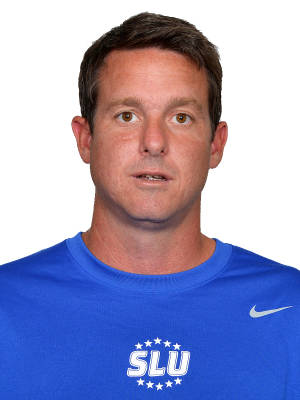
Article By:
Coach Tim Kelly, Director of Goalkeeping at St. Louis Scott Gallagher Soccer and Academy Director of Goalkeeping at St. Louis FC
Twitter:
@tkslsgsoccer
Did you start your FREE 14 Day Trial Of Soccer Coaches University yet?
